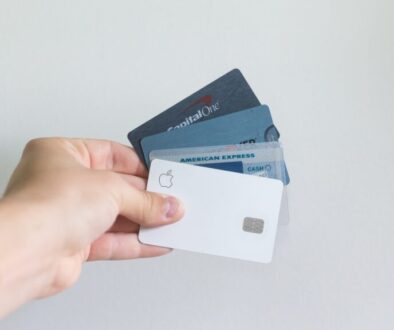It is of the utmost importance that your personal finances are kept in order. The problem is that most people do not know how to properly manage their finances. In the following article, you are going to be given information that is crucial to follow if you want your finances in order.
Financing real estate is not the easiest task. The lender considers several factors. One of these factors is the debt-to-income ratio, which is the percentage of your gross monthly income that you spend on paying your debts. This includes everything from housing to car payments. It is very important not to make larger purchases before buying a home because that significantly ruins the debt-to-income ratio.
Set yourself a monthly budget and don’t go over it. Since most people live paycheck to paycheck, it can be easy to overspend each month and put yourself in the hole. Determine what you can afford to spend, including putting money into savings and keep close track of how much you have spent for each budget line.
Never use a credit card for cash advances. The interest rate on a cash advance can be almost double the interest rate on a purchase. The interest on cash advances is also calculated from the moment you withdrawal the cash, so you will still be charged some interest even if you pay off your credit card in full at the end of the month.
To keep your personal finances in order, it’s essential to protect yourself from identity theft, and there are some simple ways to do this. Ensure that you thoroughly shred any documents containing any information from financial institutions, such as bank statements, before throwing them out in the trash. This is because fraudsters target the waste disposal system precisely for documents containing information like this.
A great tip for anyone interested in finding extra money each month to put toward existing debts is to make a habit each day of emptying your pockets or purse of change received during cash transactions. It may seem like a small thing, but you will be amazed by how much money actually accumulates over time, and you may find yourself paying down that stubborn credit card balance faster than you ever thought possible.
When writing checks or using your debit card, always write down your purchase in your check ledger. You don’t have to do your subtracting at the very moment you make the purchase, but do make note of it. Calculate your expenses at least once a day. In this way, you will never be overdrawn.
Save money on your cell phone plan by choosing the right options. A contract-free plan requires you to buy your phone up front, but you’ll save on monthly costs. If you want your phone at a discount, you’ll likely be locked into a plan for a couple of years. A contract option can also make more sense if you want to add other people on a family plan.
If you decide to hire a credit repair firm to help with fixing your credit, make sure you understand what they charge. Many firms charge you by the number of disputes and deletions attempted with no guarantee of success. Try to find a credit repair firm that charges fair and has no hidden fees.
Every dollar counts, and you should find all of the coins in your home and put them in the bank. Search all of your couch cushions and pockets of your jeans, to find extra quarters, dimes, and nickels that you can cash in. This money is better served earning interest than lying around the house.
Smoking and drinking are two things that you will want to avoid if you want to put yourself in the best position financially. These habits not only hurt your health, but can take a great toll on your wallet as well. Take the steps necessary to reduce or quit smoking and drinking.
As a college student, you will want to reduce the amount that you spend on books and supplies. Instead of purchasing books at the campus bookstore, which is usually at retail price, make friends with upperclassman who can give you these books at a discount. This can save you hundreds of dollars per semester.
In regards to your personal finances, one of the worst things that you can do is gamble a lot of money at a casino. Casinos are geared to have an advantage, as you can lose your life savings on a bad day. If you do go to the casino, bring a couple hundred dollars in and leave your credit and debit cards behind.
Pay yourself every paycheck. After you have paid for necessities like rent and have set aside money for food and gas, divert some money to a savings account, if you possibly can. It doesn’t have to be a lot- even $10 biweekly adds up to over 260 dollars a year, which makes a great emergency fund.
It is imperative that one is able to draw from an emergency fund when emergencies arise. The first baby step is to save up 500 dollars of an emergency fund, and then as you can, increase it to 1000 dollars. After you are used to not touching your emergency fund and you start building, you should end up with three to six months worth of living expenses as your emergency fund.
You should go over your portfolio every year. Re-balancing your money can allow you to decide what you can tolerate in terms of risk, and your ultimate goals. It also teaches you the value of watching your money. It puts you in front of your investments yearly, where you can assess the importance of sensible money management.
As stated in the beginning of the article, a person cannot get their personal finances into order without knowing how. And sadly, many people do not know how. This article was made to give you tips and information that you can use in order to get your finances on the right track.




